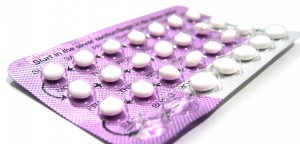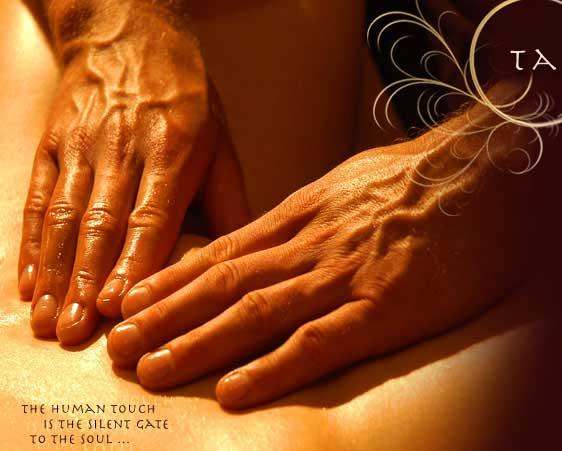Does The Pill Affect Our Relationships?
While we’re all endlessly debating rights that every woman should already have, it’s easy to overlook the fact that nearly four in ten  women say they’re not completely satisfied with their current birth-control method. Side effects, difficulty of use, worries about effectiveness, and reduced sexual pleasure are just some of the many reasons women give for their dissatisfaction. A March 2011 online survey of 2000 women in their twenties and thirties showed that more than two in three women using hormonal birth control have considered changing their current method, and one in three have considered doing so within the past year.
women say they’re not completely satisfied with their current birth-control method. Side effects, difficulty of use, worries about effectiveness, and reduced sexual pleasure are just some of the many reasons women give for their dissatisfaction. A March 2011 online survey of 2000 women in their twenties and thirties showed that more than two in three women using hormonal birth control have considered changing their current method, and one in three have considered doing so within the past year.
All this public bickering has distracted us from the more personal dialogue that would actually benefit women. And the reasons some of us are unhappy on the pill are very personal indeed: accumulating scientific studies reveal that the potent synthetic hormones more than ten-million women take every day (and which four out of five have taken at some point in our lives) have a big impact on our romantic relationships. Here’s what we know so far.
Six recent studies remind us that the questions surrounding the pill aren’t solely political.
1. The pill changes what women look for in men.
Source: “Relationship satisfaction and outcome in women who meet their partner while using oral contraception” (2011)
In plain English: Women taking the pill when they met their partners were more likely to remain in the relationship than those who weren’t. Those who weren’t on the pill tended to start relationships with partners who were better-looking and better in bed, but those relationships ended faster. (Insert cynical joke here.) In contrast, women on the pill sought partners who were less physically attractive, but more financially stable.
2. The pill may reduce frequency of sex and arousal.
Source: As-yet unpublished Indiana University study (2011)
In plain English: This study of 1100 women found that using hormonal birth control was associated with less frequent sex, and less frequent feelings of arousal and pleasure. “A great effort has been made to make condoms more pleasurable for men,” said Nicole Smith, project coordinator at IU’s Center for Sexual Health Promotion. “But you don’t hear about this same effort going toward reducing the negative impact of contraception on women’s sexual functioning. It’s just not part of the discussion.” (So don’t worry about getting pregnant, because you won’t want to have sex on the pill, anyway.)
3. The pill can alter the signals women send to men.
Source: “Does the contraceptive pill alter mate choice in humans?” (2009)
In plain English: Throughout our menstrual cycles, hormonal fluctuation can alter our facial appearance, body odor, and vocal pitch. The changes we undergo during ovulation indicate our fertility. Men can actually sense those changes — and they prefer fertile ladies. The pill inhibits ovulation, so those who take it aren’t emitting the same “yes, get over here and impregnate me” signals. Science writer Jena Pincott tells The Daily Beast that the problem’s not just about men’s subconscious perceptions; women’s behavior changes too. “Around ovulation, we’re more likely to dress provocatively and be more easily aroused. That’s attractive to the opposite sex, and the pill diminishes some of that edge.” (Maybe try going out with a group of girlfriends on higher doses of the pill, so that, by comparison, you’ll seem the most fertile and attractive? Yes, that’ll work.)
 4. Women’s pheromonal instincts are altered by the pill.
4. Women’s pheromonal instincts are altered by the pill.
Paper: “MHC-correlated odour preferences in humans and the use of oral contraceptives” (2008)
In plain English: Scent matters. And what ladies learn when subtly sniffing our dates at the end of the night (what? you don’t do that?) are important hints about compatibility. In particular, we uncover information about the guy’s major histocompatibility complex (MHC) genes. We prefer MHC genes different from ours. Evolutionarily speaking, this makes sense. After all, you don’t want to marry a relative — not only because it’s icky but also because your kids will have stronger immune systems if you don’t. But it turns out women on the pill seem to like partners with similar genes. You may be in for some serious Greek tragedy shit.
5. The pill prevents you from going into sexual heat (which exists, incidentally).
Paper: “Ovulatory cycle effects on tip earnings by lap dancers: economic evidence for human estrus?” (2007)
In plain English: Other mammals go into heat (“estrus,” if you want to get technical), but humans don’t, right? Wrong, according to this study. Over the course of 5,300 lap dances, strippers anonymously reported both their earnings and their menstrual status to the authors of this study. Women who were off the pill made significantly more money, especially when they were ovulating. Women on the pill made significantly less than those with a natural cycle, and had no peak-earning periods. So that moneymaker you’re shaking so vigorously won’t make you as much money if you’re on the pill.
6. The pill raises levels of hormones that might not be very good for you.
In plain English: Women’s sex hormone-binding globulin (SHBG) levels were tested after six months off the pill. Higher levels of SHBG may put women at increased risk for sexual problems. Those who had gone off the pill had levels nearly double those who had never taken the pill. Ladies still taking the pill had even higher levels. It’s unclear whether the effects are eventually reversible.







